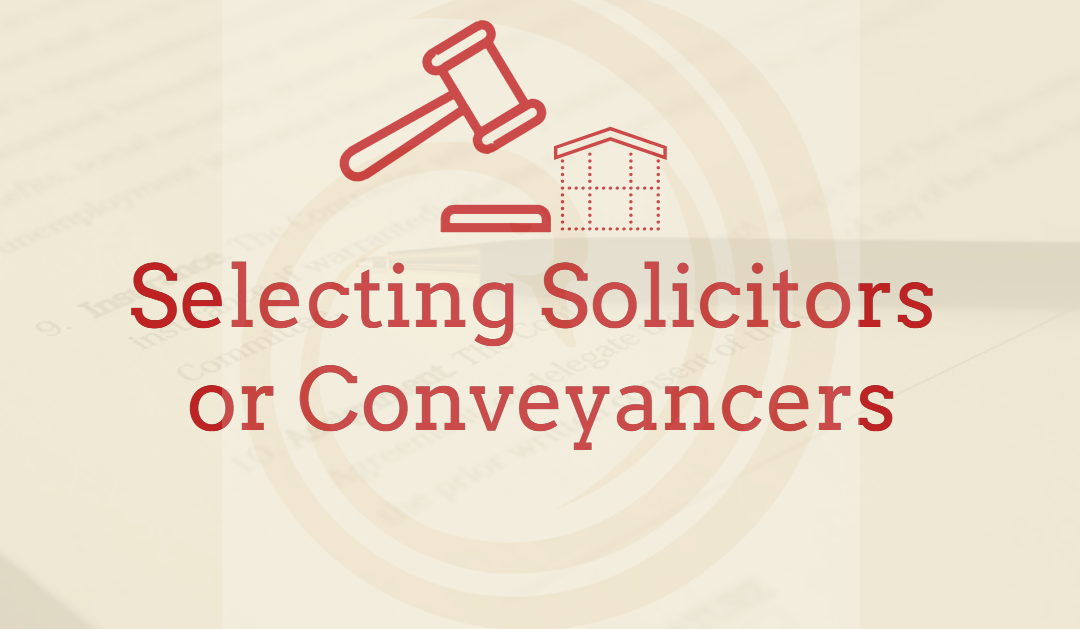After you have agreed on a sale, the next step is to instruct a solicitor or conveyancer to transfer the legal ownership of the property. So how do you choose a good firm for the process?
What separates a conveyancer and a solicitor?
Both solicitors and Licensed Conveyancers are regulated and insured. In terms of handling your property transaction, they will operate to almost identical practices and processes but it is worth noting the key differences between them:
- Licensed conveyancers are specialist property lawyers, focusing mainly on residential property.
- A solicitor is a qualified lawyer, with training in many aspects of the law, and can offer full legal services and taking people to court.
Instructing a solicitor to undertake conveyancing rather than a conveyancer may, therefore, cost you more.
Reasons buyers and sellers may get frustrated with their conveyancer or solicitor…
Conveyancing involves a lot of documents and paperwork and it is essential that all aspects are properly completed. If the solicitor or conveyancer is not diligent and efficient in sending off the right paper at the right time, they can cause huge delays to the progression. To ease the process, most modern conveyancing practices offer online case file tracking facilities to allow you to access live and up-to-date information on your transaction.
Some consultants (solicitors or conveyancers) can be difficult to get hold of, making it hard to track the progress of your case or to get any queries answered. This can be particularly the case with solicitors who undertake other work outside of conveyancing which may mean they are in Court or in and out of the office which can hinder client communication. Conveyancers are often office-based which can enable better client communication.
We advise you check that cheap quotes from firms are not missing hidden costs. Do your research and make sure you are aware of what the final bill will be. Most of all, you want to make sure to avoid conveyancers or solicitors who charge an hourly rate. Be cautious of any quote that does not fully itemise every charge.
Are there certain transactions I should instruct a solicitor over a conveyancer?…
For particularly difficult transactions you should use a fully qualified solicitor. In an instance where there is a dispute over boundaries or if the owners are getting divorced and are using more than one solicitor with knowledge beyond the property conveyancing law would be necessary. But in most cases, a conveyancer will be able to handle your transaction.
Are there disadvantages of instructing a solicitor? …
They are more often more expensive. Make sure you get full itemised quotes from a solicitor so you can make a direct and fair comparison on fees with alternatives as costs can vary substantially.
Distractions and other case types – they can have other complex cases with urgent deadlines which can push your conveyancing to the bottom of the pile.
Solicitors more often will insist on seeing you in person to verify who you are. This is undoubtedly inconvenient and means you ideally want to use a solicitor whose office you are prepared to visit.
Most solicitors are highly specialised, but some are generalists who do the occasional bit of conveyancing. If you do opt for a solicitor ensure they are a property specialist, able to deal with freehold or leasehold transactions.
Getting a mortgage?…
Some mortgage lenders will only deal with certain conveyancers and solicitors on their “panel” – who in turn usually pay the lender for the privilege.
If you do not use a conveyancer or solicitor on their panel you will usually have to pay for the bank’s representation fees. This is usually around £200 but does vary.
We do hope this has helped you plan on your negotiation tactics. If you have a property to sell and would like to arrange a no obligation Valuation with one of us or would like further information, call us on 01932 22 21 20. Or join the Walton Property Community Group on Facebook or you can subscribe to our YouTube channel for free property advice, local property news and market updates.
If you want to find out the value of your property, you can get a free and instant valuation here.
Article sources: Homeowners Alliance & Land Registry.




